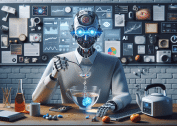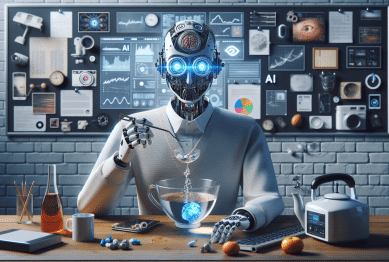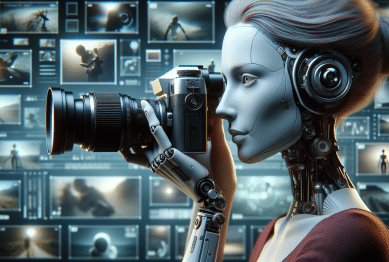Quantum computing is starting to reshape technology, science, and our daily routines in ways that might surprise you. This in-depth guide explores what makes quantum computers unique, their future applications, and what their rise could mean for security, artificial intelligence, and industries worldwide.
Understanding Quantum Computing Basics
Quantum computing moves beyond classical systems by leveraging the principles of quantum mechanics, like superposition and entanglement. While traditional computers use bits as the smallest unit of data, quantum computers use qubits, which can exist in multiple states at once. This fundamental difference enables quantum machines to process information in ways that are impossible for standard computers. It’s a leap that brings the potential for staggering computational power.
Superposition lets a qubit represent both 0 and 1 at the same time. Additionally, entanglement intertwines the state of one qubit with another, meaning their properties are connected regardless of the distance between them. These features allow quantum computers to handle complex problems—like simulating molecular structures or optimizing massive networks—much faster than classical systems. The tech world is paying close attention as researchers race to unlock these advanced capabilities.
Despite their promise, quantum computers are still in early stages of development. Building and maintaining stable qubits is a significant engineering challenge. Most quantum processors now operate at extremely cold temperatures and require advanced error correction. Yet, each breakthrough brings us closer to practical applications. Leading companies and governments are investing billions to accelerate this progress, underlining the global anticipation for the next big leap in computing.
Key Differences Between Classical and Quantum Computers
At the heart of their difference is information processing. Classical computers follow a linear path: they manipulate bits that represent either 0 or 1. Simple, predictable, and reliable. In contrast, quantum computers can work with complex superpositions, performing many calculations simultaneously. This ability is poised to revolutionize data-heavy fields, from cryptography to climate modeling.
Another distinction involves speed and efficiency. While classical processors have become faster over decades of Moore’s Law improvements, quantum computers introduce exponential speedups for select algorithms. Factoring large numbers, searching unstructured databases, and simulating quantum physics all become more feasible with quantum tech. Still, classical computers remain unrivaled for everyday tasks, as quantum systems are best suited to specialized problems.
When it comes to reliability, quantum computers have inherent noise and instability due to the delicate nature of qubits. Engineers are working on error correction methods, but widespread deployment of quantum systems will require resilient hardware. The blend of classical and quantum computing—known as hybrid computing—will likely power the next phase of technological growth, leveraging the strengths of both approaches for the greatest impact.
Security and Cryptography in a Quantum World
Quantum computers could reshape digital security by challenging the building blocks of modern cryptography. Most encryption methods, like RSA, rely on the difficulty of factoring large numbers—a task classical computers struggle with but quantum devices could tackle swiftly. The emergence of practical quantum machines has prompted global efforts to develop quantum-resistant algorithms to safeguard sensitive data.
Institutions and governments are already preparing for this future by investing in research on post-quantum cryptography. This emerging field seeks to design encryption methods that remain secure even against quantum-enabled attackers. For users, transitioning to quantum-safe standards will involve the gradual adoption of new protocols as part of digital infrastructure updates. The urgency is clear, as outdated encryption could put both public and private information at risk.
Quantum key distribution (QKD) is another innovation gaining traction. It uses quantum principles to create theoretically unbreakable encryption keys, providing an extra layer of security for communications. Though still in early commercial phases, QKD networks are being piloted in several countries. As adoption grows, new norms will emerge for secure communication systems, reflecting both the promise and challenges of quantum encryption.
Real-World Applications: From Medicine to Logistics
Quantum computing is expected to lead a revolution in multiple sectors, often solving problems that are intractable for today’s machines. In pharmaceuticals, quantum simulations can model molecular interactions with stunning accuracy, which could accelerate drug discovery and the creation of new materials. Scientists also hope to tackle climate modeling and chemical reactions, areas where quantum power could drive research that was previously not feasible.
Industries like logistics and supply chain management are preparing for quantum-inspired optimization. With the help of quantum algorithms, companies can analyze enormous datasets to optimize delivery routes, manage resources more efficiently, and predict supply chain disruptions. These capabilities could drastically reduce costs and maximize efficiency. The same logic applies to financial modeling and risk assessment, where rapid simulations create new possibilities for strategy development.
Healthcare is another promising arena. Quantum computing may improve medical imaging by enabling more precise data analysis, thereby enhancing diagnostics. Research institutions anticipate breakthroughs in genomics, helping unravel the complexities of DNA and disease interactions. All of these hands-on uses demonstrate the vast and practical potential of quantum technologies, signaling tangible changes on the horizon as hardware capabilities mature.
Artificial Intelligence and Machine Learning Enhanced by Quantum Computing
Artificial intelligence stands to gain a powerful ally in quantum computing. Machine learning models require analyzing massive amounts of data and complex patterns—a task where quantum processors show immense promise. Leveraging quantum’s parallelism, AI could train more quickly and uncover insights that remain hidden from classical algorithms.
Quantum algorithms like Grover’s search algorithm and quantum neural networks are already reshaping the future of AI development. While practical quantum AI remains experimental, early results indicate the ability to solve certain optimization and pattern recognition tasks much faster. For fields such as natural language processing and image recognition, these advancements could make existing tools smarter and far more responsive.
The synergy between AI and quantum computing extends into scientific discovery. By automating hypothesis testing and sifting through complex datasets, quantum-enhanced AI could speed up progress in everything from particle physics to personalized healthcare. The coming years promise new frontiers in automation, where machines blend the strengths of quantum hardware and intelligent software to tackle the world’s toughest challenges.
Challenges and the Future of Quantum Computing
Despite its enormous potential, quantum computing faces several hurdles before broad adoption. Complex engineering demands top-notch research and significant resources, not just for developing processors but also to ensure their reliability. Error rates, qubit stability, and hardware scalability remain top concerns for scientists and engineers. Progress often comes in small, hard-won increments.
Workforce skills represent another obstacle. There’s a limited pool of experts with the knowledge to build, program, and maintain quantum computers. As the field expands, universities and online platforms are launching new courses to prepare the next generation of quantum specialists. Educational efforts must keep pace with innovation to ensure a robust talent pipeline for future technologies.
Looking forward, hybrid approaches may dominate. Quantum computers are unlikely to replace classical systems but will complement them in areas where their unique advantages matter most. The global race for leadership in quantum tech is fueling investments, collaborative research, and the creation of dedicated quantum labs. As barriers fall, users and organizations worldwide will gradually integrate quantum capabilities into everyday processes, sparking a fundamental shift in how we solve problems and expand knowledge.
References
1. National Institute of Standards and Technology. (n.d.). Post-Quantum Cryptography. Retrieved from https://csrc.nist.gov/projects/post-quantum-cryptography
2. IBM Research. (n.d.). Explore Quantum Computing. Retrieved from https://research.ibm.com/quantum-computing/
3. European Union. (n.d.). Quantum Technologies Flagship. Retrieved from https://qt.eu/
4. National Institutes of Health. (n.d.). Quantum Computing and Biomedical Research. Retrieved from https://datascience.nih.gov/quantum-computing
5. Government of Canada. (n.d.). The Future of Quantum Computing. Retrieved from https://nrc.canada.ca/en/research-development/research-collaboration/programs/quantum-computing
6. MIT OpenCourseWare. (n.d.). Introduction to Quantum Computing. Retrieved from https://ocw.mit.edu/courses/6-443j-quantum-information-science-spring-2017/pages/lecture-notes/









